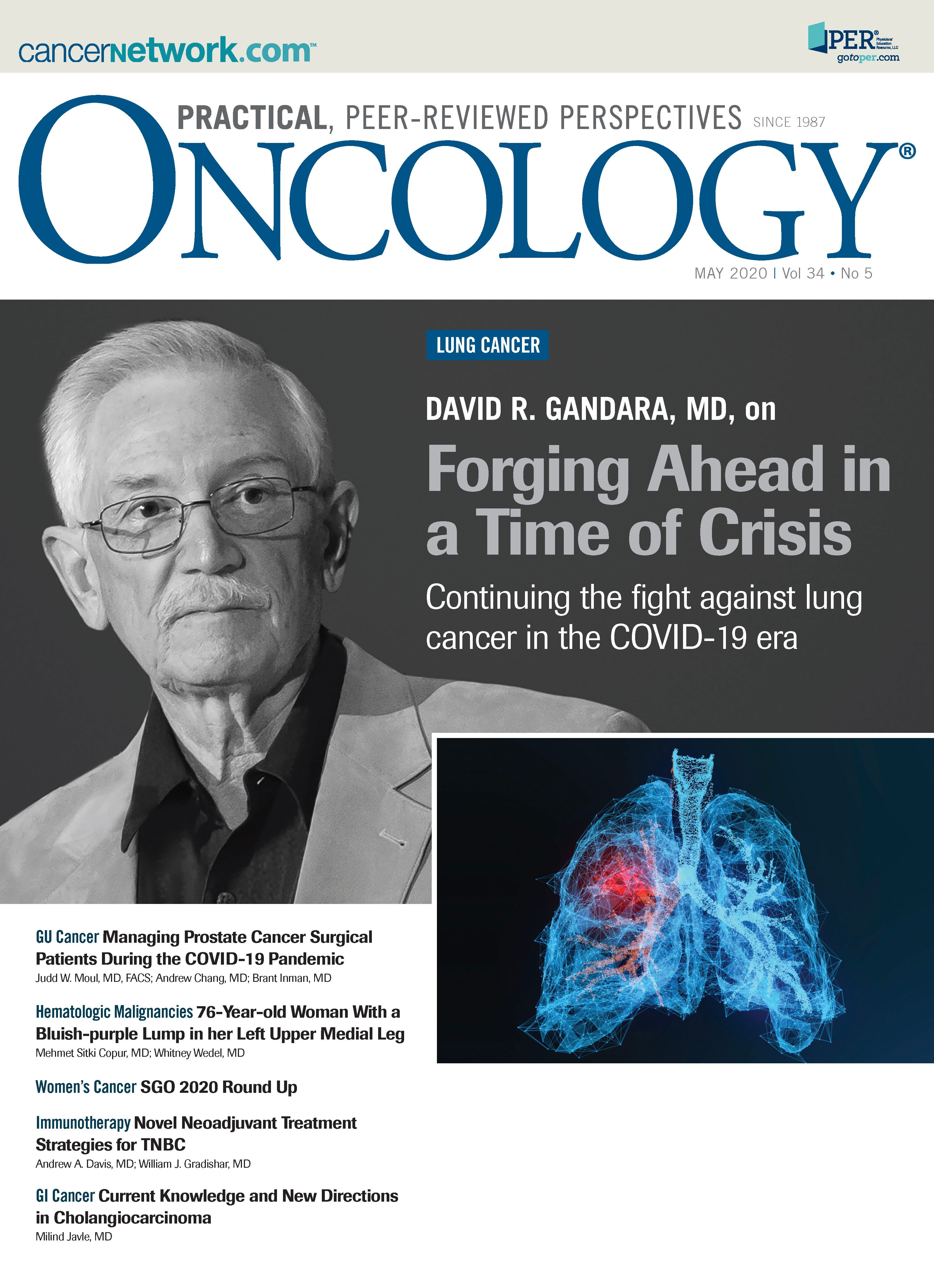Navigating Uncharted Waters
While so much of the medical community has focused its attention on treating and caring for patients with the coronavirus disease 2019 (COVID-19), the unfortunate truth is that the need for quality and compassionate cancer care continues.
In this issue of ONCOLOGY®, we spoke with David R. Gandara, MD, director of the thoracic oncology program and senior adviser to the director of the University of California Davis Comprehensive Cancer Center, about the impact of the pandemic on the current management and treatment of patients with lung cancer, as well as the future of patient care in a post–COVID-19 world.
“What has happened has dramatically changed how we practice, how we interact with lung cancer patients,” says Gandara. “But it hasn’t altered the basic premise that lung cancer is now a highly treatable disease.”
Gandara also looks ahead at how the current state of virtual interactions in medical education might persist once the pandemic has passed. “I actually hope some long-term changes will occur in both cancer care and education,” says Gandara. “Attendees, virtual attendees, will be able to select what sessions they tune into and which they don’t. I think this will change the face of [continuing medical education].”
Also in this issue, you will read about how Judd W. Moul, MD, and his colleagues at the Duke Cancer Institute are managing their care of surgical patients with prostate cancer in the face of the COVID-19 pandemic. Moul’s report, along with expert commentary from Eric A. Klein, MD, regarding his experience at the Cleveland Clinic, attests to the ability of oncologists, and the medical community at large, to adapt and continue to provide expert care in the face of unprecedented challenges.
For this month’s clinical quandary, you will read about the case of a 56-year-old man with immune-mediated adverse events involving multiple organ sites. How do we resolve this? Read on to find out.
Within these pages, you will also find a review of novel neoadjuvant treatment strategies for triple-negative breast cancer, a roundup of some of the recently released abstracts from the Society of Gynecologic Oncology 2020 Annual Meeting on Women’s Cancer, and an Image IQ to test your knowledge of hematological malignancies.
I hope you find our journal helpful in caring for your patients through what is likely one of the most challenging times in their lives. As always, thank you for reading.

2 Commerce Drive
Cranbury, NJ 08512
All rights reserved.